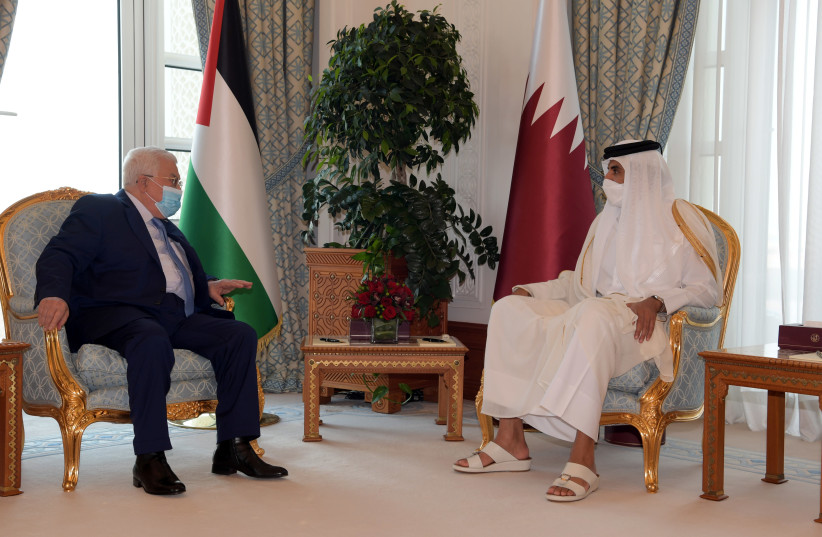Qatar’s regime in August excluded some members of the prominent Al Murrah tribe from participating in the October election for its advisory Shura Council, prompting a rare August demonstration in the monarchy state and outrage on social media.
Members of the Al Murrah tribe, one of the Gulf’s largest Bedouin groups with roots tracing back to eastern Saudi Arabia, gathered to protest the law that bars Qataris whose family was not present in Qatar before 1930 from voting.
Videos posted on social media showed a group of men protesting outside a building in Qatar. Reuters could not independently verify the authenticity of the footage.
One tribesman posted a video appeal to the emir. “Unfounded political inequality and selective citizenship could lead to divisions,” attorney Hazaa bin Ali said in the appeal to Emir Sheikh Tamim bin Hamad al-Thani posted on YouTube and on his Twitter account.
“We stood by your ancestors, your highness, and we stood by you in the blockade crisis,” he added. “We will demand our rights and our dignity... We ask you to do what is right.”
Qatar’s Interior Ministry tweeted that it seeks the prosecution of seven people, presumably from the Al Murrah tribe, who are charged in connection with the election with publishing “incorrect news” and inciting “racial and tribal arrogance.”
Freedom House rated Qatar in 2020 as a “not free” country, noting “Qatar’s hereditary emir holds all executive and legislative authority and ultimately controls the judiciary as well. Political parties are not permitted, and the only elections are for an advisory municipal council... the vast majority of the population consists of noncitizens with no political rights, few civil liberties, and limited access to economic opportunity.”

QATAR’S EMIR, Sheikh Tamin bin Hamad Al Thani, declared that Qataris who are older than 18 can vote, with a requirement that a grandfather was born in the oil-rich country. The age to be a candidate for office is 30.
In 2017, the Saudi news outlet Al Arabiya reported that the head of the Al Murrah tribe in Qatar, Sheikh Taleb bin Lahom bin Shreim, said Qatar stripped him and 54 of his relatives of citizenship. “The Qatari authorities have become a source of a haven for terrorists and their sponsors, and the subject of discussion is much bigger than nationality. It is a big attack on Saudi Arabia and the Gulf states,” the Al Murrah leader told Al Arabiya.
In 2005, Qatar stripped some tribe members of their citizenship, saying it was because they held dual nationality, denying it was punishment for suspected involvement in a failed 1996 coup to reinstate deposed Emir Sheikh Khalifa bin Hamad.
The Qatari government communication office did not respond to a Reuters request for comment.
Separately, The Jerusalem Post confirmed American and Israeli media reports that former president Reuven Rivlin delivered an intelligence file to US President Joe Biden in late June, asserting Qatar’s regime finances Iran’s Islamic Revolutionary Guard Corps.
The US sanctioned the IRGC as a terrorist organization.
A former Israeli intelligence official, who is familiar with the file on Qatar, told the Post that there is “hard intelligence” on Qatar’s funding of the IRGC and it is “classified.” When contacted, Israeli officials declined to comment.
The US state department launched a probe into the Israeli allegation that Qatar is funding the IRGC.
The Post reported last year that a private security contractor, who penetrated Qatar’s military and intelligence system, revealed that Qatar funds Iran’s chief proxy, the Lebanese-based terrorist movement, Hezbollah.
Ghanem Nuseibeh, the founder of London-based Cornerstone Global Associates and an expert on Qatar, told the Post that “Of course! Qatar has been supporting extremist Islamic groups that openly work against Western interests and support terrorism. Qatar provides direct financial aid, logistical support via its media arms and likely shares sensitive intelligence to those groups. This is something that directly undermines Western security interests and is by no means according to what you would expect an ally to behave. The IRGC is a US-designated terrorist group that is alleged to have been responsible for serious human rights violations around the world.”
He added, “Qatar has acted as an incubator for the Taliban during the past few years. With the Western withdrawal from Afghanistan, Qatar needs to answer for its support for terrorist groups and human abusers. This is the time that the West can salvage some of the damage inflicted by Qatar and make [clear] – in no uncertain terms – to Qatar that supporting such groups will lead to serious repercussions.”
Nuseibeh said “As Qatar still hopes to host the 2022 FIFA World Cup, countries should make clear that they will not participate in a tournament hosted by a supporter of such groups and human rights violators, otherwise we will send the wrong message to Muslim youth around the world that not only is it ok to be a human rights violator, but in fact this is something you will be rewarded for.”
Reuters contributed to this report.
